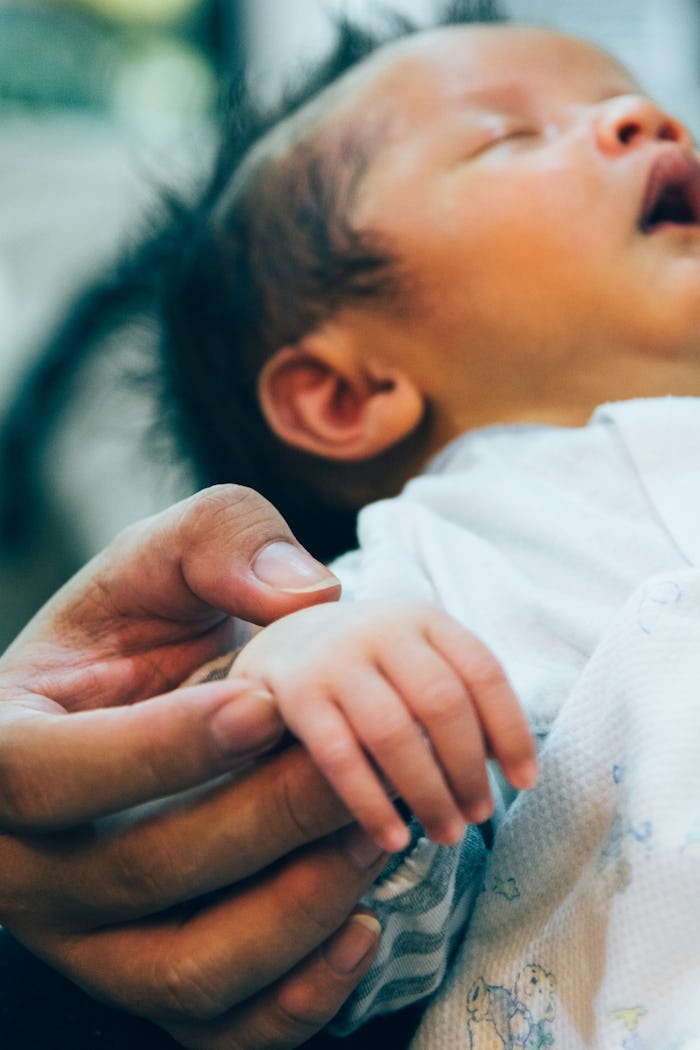When my children where infants, I would often sneak into their rooms and check on them while they slept. Even though I'd read practically every parenting book on the market during my pregnancies and knew the risk factors for SIDS, the chronic worrier in me just always wanted to be sure they were safe. If you have an infant, you probably already know how important it is to make sure your baby sleeps in a safe environment. But there's a good chance that there are some SIDS risks you may not be aware of.
According to the National Sleep Foundation, Sudden Infant Death Syndrome, or SIDS, is defined as the sudden death of an infant under age one, whose cause cannot be determined even after an autopsy has been conducted. The Centers For Disease Control and Prevention (CDC) notes that in 2014, approximately 1,500 infants died of SIDS in this country. One of the scariest things about SIDS is that the infants it affects are often deemed relatively healthy before their untimely death.
Although there is no one known cause of SIDS, there are some things you can do to reduce your baby's risks dramatically. Keeping him away from smoke, laying him to sleep on his back, and removing blankets, loose fitting sheets, and stuffed animals from the crib can all help to keep infants safe as they sleep.
Before you put your baby down to sleep today, take a look at this list of SIDS risks that you may not have known and adjust your habits accordingly. A few simple changes can help ensure your baby enjoys a healthy first year of life.
1Having A Lot Of Siblings
Having lots of children can put each of them at greater risk for SIDS. According to Baby Center, a baby's risk for SIDS increases with each sibling. And the closer the children are in age, the higher the risk.
2Skipping Immunizations
Keeping your baby's shots up to date can help them stay healthy even in their sleep. WebMD referenced a study which concluded that babies who have been immunized reduce their risk of SIDS by 50 percent.
3Using A Crib Bumper
They may be a cute accessory for your baby's nursery, but crib bumpers can be extremely dangerous. According to Baby Center, crib bumpers can suffocate your baby and put them at risk for SIDS.
4Sleeping On Tummy
According to the National Sleep Foundation, allowing your baby to sleep on her belly can be dangerous. Sleeping in a prone position puts her face in the mattress, which could end up smothering her. Be sure to educate grandparents and caregivers of this risk, as the research has changed in recent years.
5Eating Honey
Hold off on giving honey to infants under the age of one. According to WebMD, honey has been known to lead to botulism, a rare food poisoning which has been linked to SIDS, in young children.
6Having A Boy
Although the reason is still unknown, being a girl can reduce a babies risk for SIDS. As further explained on Baby Center, boy babies have a 30 to 50 percent higher chance of dying of SIDS than girl babies, as mentioned on Baby Center.
7Making Baby Too Warm
Parents of newborns are often tempted to cover their babies in blankets and thick pajamas to make sure they are warm enough at night. However, this could actually be doing more harm than good. According to the website Kids Health, making your baby too warm at night could put them at risk for SIDS, as they could fall into a deep sleep that would be difficult to wake from. Instead, dress them in a manner that would make an adult comfortable.
8Secondhand Smoke
You already know that smoking during your pregnancy can be dangerous, but the risks don't stop once the baby is born. Exposure to secondhand smoke puts infants at greater risk for SIDS, according to the CDC.
9Letting Baby Sleep With Siblings
It may be cute to watch your kids sleep together, but the consequences could be extremely dangerous. According to the American SIDS Institute, allowing your baby to share a bed or crib with another child can increase their risk for SIDS.
